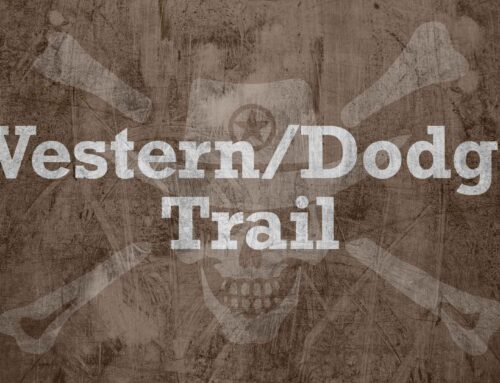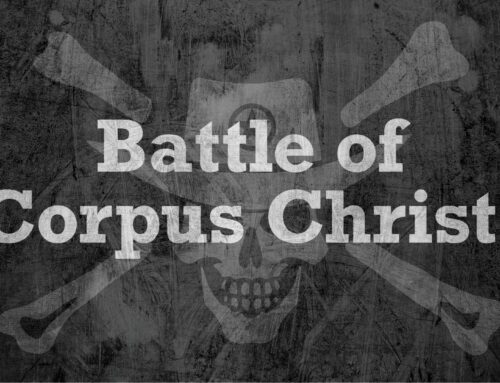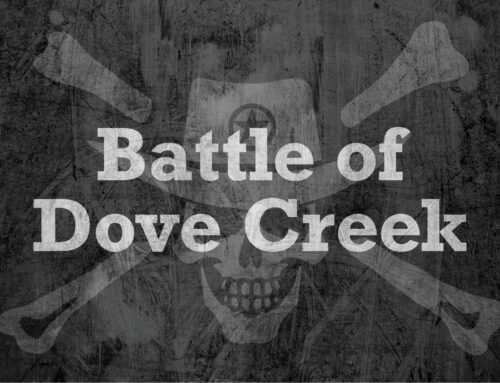John Wesley Hardin
- Birth Date: May 26, 1853
- Birth Place: Bonham, Texas
- Death Date: August 19, 1895
- Death Place: El Paso, Texas
John Wesley Hardin was born to James “Gip” Hardin and Mary Elizabeth Dixson in Bonham, Texas. Raised in a devout Methodist family, Hardin’s early years were marked by religious teachings. However, his fiery temper and penchant for violence emerged early on. Hardin is best known for his reputation as one of the deadliest gunfighters in the Old West, claiming to have killed 42 men, though the actual number is believed to be less. His life was a series of personal vendettas, disputes, and confrontations with lawmen. Hardin’s criminal career came to an end when he was captured, tried, and imprisoned. After serving 16 years, he was released, only to be shot and killed in El Paso in 1895.
Additional Information: John Wesley Hardin is a controversial figure in Texas history. While some view him as a ruthless killer, others see him as a product of the violent times in which he lived. His life has been the subject of numerous books, articles, and even songs, painting a picture of a man who lived by the gun and died by the gun.
Key Points:
Early Life: John Wesley Hardin was born on May 26, 1853, in Bonham, Texas. Growing up, he was exposed to the tumultuous environment of post-Civil War Texas. At the tender age of 15, Hardin claimed to have killed his first man, setting him on a path of violence and notoriety.
Turn to Crime: Hardin’s life of crime can be attributed to personal vendettas, disputes, and a general disdain for lawmen. His confrontations often ended in bloodshed, solidifying his reputation as a deadly gunfighter. He was constantly on the move, evading capture and leaving a trail of bodies in his wake.
Confrontations with Lawmen: Throughout his life, Hardin had numerous run-ins with the law. He was pursued by various sheriffs and Texas Rangers, leading to several shootouts and narrow escapes. His disdain for lawmen was evident in his confrontations, often resulting in fatalities.
Capture, Imprisonment, and Reform: In 1877, Hardin was finally captured in Florida and extradited to Texas. He was tried and sentenced to 25 years in prison. During his incarceration, he claimed to have found religion and even studied law. He was released in 1894 after serving 16 years.
Death in El Paso: After his release, Hardin moved to El Paso, where he attempted to practice law. However, old feuds and rivalries caught up with him. On August 19, 1895, he was shot and killed by John Selman, a local constable, in a saloon. Hardin’s tumultuous life came to an end, but his legend lived on, making him a lasting figure in the annals of Texas history.
King Fisher
- Birth Date: October 1853 (exact date unknown)
- Birth Place: Collin County, Texas
- Death Date: March 11, 1884
- Death Place: San Antonio, Texas
King Fisher was born as John King Fisher in Collin County, Texas. From a young age, he was exposed to the violent and lawless frontier life, which shaped his future as an outlaw and gunfighter. Fisher’s early criminal activities revolved around cattle rustling, but he soon gained a reputation as a deadly marksman. He is best known for his involvement in the Sutton-Taylor feud, one of the most notorious range wars in Texas history. Despite his criminal activities, Fisher tried to reinvent himself as a legitimate rancher in his later years. However, his past caught up with him, and he was killed in a gunfight in San Antonio.
Additional Information: King Fisher is a prominent figure in Texas history, often romanticized as a classic gunfighter of the Old West. While many tales of his exploits have been exaggerated over the years, there’s no denying his impact on the state’s history. Fisher’s life was a mix of violence, ambition, and attempts at redemption. Although he was involved in numerous gunfights and had a reputation as a dangerous man, he also had aspirations of settling down and leading a peaceful life.
Key Points:
Early Life: John King Fisher was born in October 1853 in Collin County, Texas. Growing up in a tumultuous environment, Fisher was exposed to the rough and tumble world of the Texas frontier. By the age of 16, he was already involved in cattle rustling and had a reputation for being quick on the draw.
Rise to Notoriety: As Fisher matured, his criminal activities expanded. He became a renowned gunfighter, often clashing with rival outlaws and lawmen. His involvement in the Sutton-Taylor feud, a violent conflict between two feuding families, further cemented his status as a formidable figure in Texas.
Attempts at Redemption: In the later stages of his life, Fisher tried to distance himself from his criminal past. He purchased a ranch and aspired to become a legitimate businessman and rancher. He even served as a lawman for a brief period, further highlighting his complex character.
San Antonio Ambush: In 1884, Fisher’s past caught up with him. While in San Antonio, he and fellow gunfighter Ben Thompson were ambushed in a theater. Both men were killed in the ensuing gunfight, marking the end of Fisher’s tumultuous life.
Legacy: King Fisher’s grave can be found in the Pioneer Cemetery in Uvalde, Texas. Over the years, his life story has been the subject of numerous books, articles, and even films, showcasing the complexities and contradictions of this legendary Texan outlaw.
Sam Bass
Birth Date: July 21, 1851
Birth Place: Mitchell, Indiana
Death Date: July 21, 1878
Death Place: Round Rock, Texas
Sam Bass was born to Daniel and Elizabeth Jane Bass in Indiana. After the death of his parents, he drifted through various jobs before arriving in Texas. His descent into a life of crime began with gambling and horse racing. Bass is best known for his train robberies, especially the Union Pacific gold train heist, which netted him $60,000 – one of the largest from a single robbery. His criminal career was short-lived, as he was ambushed and killed by Texas Rangers on his 27th birthday in Round Rock.
Additional Information:
Sam Bass is a legendary figure in Texas history, particularly in Round Rock. Over the years, his story has been embellished, leading many to refer to him as “Texas’ Beloved Bandit” or “Robin Hood on a Fast Horse.” However, a closer look at his life reveals a different narrative. Sam Bass was more of an opportunist than a noble outlaw. For him, robbing trains and banks seemed more like an adventurous pastime than a serious crime, often not fully comprehending the ramifications of his actions.
Key Points:
Early Life:
Sam Bass was born on July 21, 1851, in Mitchell, Indiana. Orphaned at a tender age, he was raised by his uncle and cousins. Lacking formal education, he ventured to Texas, where he took up various jobs, even working for a sheriff at one point. However, the allure of quick money drew him to horse racing and gambling.
Turn to Crime:
By 1875, Bass’s life took a darker turn. Teaming up with Joel Collins, they began their criminal escapades by robbing stagecoaches. Soon, they formed the “Black Hills Bandits” and shifted their focus to train robberies. Their most audacious heist occurred in Nebraska, where they made away with $60,000 in gold coins.
The “Bass War”:
In 1878, the Texas Rangers, determined to bring Bass and his gang to justice, initiated a series of confrontations known as the “Bass War.” Despite numerous encounters, Bass displayed an uncanny ability to evade capture.
The Round Rock Shootout:
Bass and his gang had set their sights on a bank in Round Rock. However, their plans went awry, leading to a fierce gunfight. This confrontation resulted in the death of Seaborn Barnes, one of Bass’s accomplices, while Bass himself was gravely wounded.
Capture and Death:
Following the shootout, a search party located the injured Bass. He was transported to Round Rock, where he tragically passed away on his 27th birthday, July 21, 1878. His final resting place is the Round Rock Cemetery, where visitors still pay their respects to this enigmatic figure of Texas history.
The Newton Gang
Willis Newton
- Birth Date: January 19, 1889
- Birth Place: Uvalde County, Texas
- Death Date: August 22, 1979
- Death Place: Uvalde, Texas
Joe Newton
- Birth Date: January 10, 1890
- Birth Place: Uvalde County, Texas
- Death Date: February 3, 1989
- Death Place: Rowena, Texas
Wylie Newton
- Birth Date: October 12, 1892
- Birth Place: Uvalde County, Texas
- Death Date: March 21, 1962
- Death Place: San Antonio, Texas
Jess Newton
- Birth Date: April 30, 1895
- Birth Place: Uvalde County, Texas
- Death Date: December 4, 1960
- Death Place: Uvalde, Texas
The Newton Gang (Willis, Joe, Wylie, and Jess Newton)
The Newton brothers, hailing from Uvalde County, Texas, were born into a world of limited opportunities. Their early life was marked by the challenges of rural living, and as they grew older, the allure of quick money and the thrill of the heist drew them into a life of crime. The Newton Gang, as they came to be known, was responsible for more train and bank heists than any other gang in history. Their most audacious robbery was the $3 million train heist in Rondout, Illinois. Despite their criminal endeavors, none of the brothers met a violent end, a rarity among outlaws of their time.
Additional Information:
The Newton Gang’s exploits made them infamous during their time, but they were unique in the annals of criminal history. Unlike many of their contemporaries, the Newton brothers were not particularly violent and often went to great lengths to ensure that no one was hurt during their robberies. Over the years, tales of their exploits have been embellished, leading some to view them as “Robin Hoods of the West.” However, a closer examination of their lives paints a picture of men driven by circumstance and opportunity rather than any noble cause.
Key Points:
Early Life:
The Newton brothers, Willis, Joe, Jess, and Wylie, were born in the late 19th century in Uvalde County, Texas. Growing up in a rural setting, the brothers were no strangers to hard work and adversity. Their early years were marked by cattle rustling, which was a common practice in the region.
Turn to Crime:
By the early 20th century, the brothers had graduated from cattle rustling to more lucrative ventures. They began their criminal careers with small heists but quickly realized the potential rewards of robbing trains and banks. Their operations were methodical, and they often used inside information to plan their heists.
The Rondout Train Robbery:
In 1924, the Newton Gang pulled off what would become their most famous heist. In Rondout, Illinois, they robbed a mail train, making away with an estimated $3 million. This heist remains one of the largest train robberies in U.S. history.
Capture and Imprisonment:
Despite their success, the law eventually caught up with the Newton brothers. After the Rondout robbery, they were arrested and tried for their crimes. Each brother served time in prison, but upon release, they largely retired from their life of crime.
Later Years and Legacy:
After serving their sentences, the Newton brothers returned to Texas. They lived relatively quiet lives, with some of them even becoming successful businessmen. Their story is a testament to the complex nature of outlaws in the American West – not all were violent gunslingers, and some, like the Newtons, were simply products of their time and environment.
John Wesley Hardin
- Birth Date: May 26, 1853
- Birth Place: Bonham, Texas
- Death Date: August 19, 1895
- Death Place: El Paso, Texas
John Wesley Hardin was born to James “Gip” Hardin and Mary Elizabeth Dixson in Bonham, Texas. Raised in a devout Methodist family, Hardin’s early years were marked by religious teachings. However, his fiery temper and penchant for violence emerged early on. Hardin is best known for his reputation as one of the deadliest gunfighters in the Old West, claiming to have killed 42 men, though the actual number is believed to be less. His life was a series of personal vendettas, disputes, and confrontations with lawmen. Hardin’s criminal career came to an end when he was captured, tried, and imprisoned. After serving 16 years, he was released, only to be shot and killed in El Paso in 1895.
Additional Information: John Wesley Hardin is a controversial figure in Texas history. While some view him as a ruthless killer, others see him as a product of the violent times in which he lived. His life has been the subject of numerous books, articles, and even songs, painting a picture of a man who lived by the gun and died by the gun.
Key Points:
Early Life: John Wesley Hardin was born on May 26, 1853, in Bonham, Texas. Growing up, he was exposed to the tumultuous environment of post-Civil War Texas. At the tender age of 15, Hardin claimed to have killed his first man, setting him on a path of violence and notoriety.
Turn to Crime: Hardin’s life of crime can be attributed to personal vendettas, disputes, and a general disdain for lawmen. His confrontations often ended in bloodshed, solidifying his reputation as a deadly gunfighter. He was constantly on the move, evading capture and leaving a trail of bodies in his wake.
Confrontations with Lawmen: Throughout his life, Hardin had numerous run-ins with the law. He was pursued by various sheriffs and Texas Rangers, leading to several shootouts and narrow escapes. His disdain for lawmen was evident in his confrontations, often resulting in fatalities.
Capture, Imprisonment, and Reform: In 1877, Hardin was finally captured in Florida and extradited to Texas. He was tried and sentenced to 25 years in prison. During his incarceration, he claimed to have found religion and even studied law. He was released in 1894 after serving 16 years.
Death in El Paso: After his release, Hardin moved to El Paso, where he attempted to practice law. However, old feuds and rivalries caught up with him. On August 19, 1895, he was shot and killed by John Selman, a local constable, in a saloon. Hardin’s tumultuous life came to an end, but his legend lived on, making him a lasting figure in the annals of Texas history.
King Fisher
- Birth Date: October 1853 (exact date unknown)
- Birth Place: Collin County, Texas
- Death Date: March 11, 1884
- Death Place: San Antonio, Texas
King Fisher was born as John King Fisher in Collin County, Texas. From a young age, he was exposed to the violent and lawless frontier life, which shaped his future as an outlaw and gunfighter. Fisher’s early criminal activities revolved around cattle rustling, but he soon gained a reputation as a deadly marksman. He is best known for his involvement in the Sutton-Taylor feud, one of the most notorious range wars in Texas history. Despite his criminal activities, Fisher tried to reinvent himself as a legitimate rancher in his later years. However, his past caught up with him, and he was killed in a gunfight in San Antonio.
Additional Information: King Fisher is a prominent figure in Texas history, often romanticized as a classic gunfighter of the Old West. While many tales of his exploits have been exaggerated over the years, there’s no denying his impact on the state’s history. Fisher’s life was a mix of violence, ambition, and attempts at redemption. Although he was involved in numerous gunfights and had a reputation as a dangerous man, he also had aspirations of settling down and leading a peaceful life.
Key Points:
Early Life: John King Fisher was born in October 1853 in Collin County, Texas. Growing up in a tumultuous environment, Fisher was exposed to the rough and tumble world of the Texas frontier. By the age of 16, he was already involved in cattle rustling and had a reputation for being quick on the draw.
Rise to Notoriety: As Fisher matured, his criminal activities expanded. He became a renowned gunfighter, often clashing with rival outlaws and lawmen. His involvement in the Sutton-Taylor feud, a violent conflict between two feuding families, further cemented his status as a formidable figure in Texas.
Attempts at Redemption: In the later stages of his life, Fisher tried to distance himself from his criminal past. He purchased a ranch and aspired to become a legitimate businessman and rancher. He even served as a lawman for a brief period, further highlighting his complex character.
San Antonio Ambush: In 1884, Fisher’s past caught up with him. While in San Antonio, he and fellow gunfighter Ben Thompson were ambushed in a theater. Both men were killed in the ensuing gunfight, marking the end of Fisher’s tumultuous life.
Legacy: King Fisher’s grave can be found in the Pioneer Cemetery in Uvalde, Texas. Over the years, his life story has been the subject of numerous books, articles, and even films, showcasing the complexities and contradictions of this legendary Texan outlaw.
Sam Bass
Birth Date: July 21, 1851
Birth Place: Mitchell, Indiana
Death Date: July 21, 1878
Death Place: Round Rock, Texas
Sam Bass was born to Daniel and Elizabeth Jane Bass in Indiana. After the death of his parents, he drifted through various jobs before arriving in Texas. His descent into a life of crime began with gambling and horse racing. Bass is best known for his train robberies, especially the Union Pacific gold train heist, which netted him $60,000 – one of the largest from a single robbery. His criminal career was short-lived, as he was ambushed and killed by Texas Rangers on his 27th birthday in Round Rock.
Additional Information:
Sam Bass is a legendary figure in Texas history, particularly in Round Rock. Over the years, his story has been embellished, leading many to refer to him as “Texas’ Beloved Bandit” or “Robin Hood on a Fast Horse.” However, a closer look at his life reveals a different narrative. Sam Bass was more of an opportunist than a noble outlaw. For him, robbing trains and banks seemed more like an adventurous pastime than a serious crime, often not fully comprehending the ramifications of his actions.
Key Points:
Early Life:
Sam Bass was born on July 21, 1851, in Mitchell, Indiana. Orphaned at a tender age, he was raised by his uncle and cousins. Lacking formal education, he ventured to Texas, where he took up various jobs, even working for a sheriff at one point. However, the allure of quick money drew him to horse racing and gambling.
Turn to Crime:
By 1875, Bass’s life took a darker turn. Teaming up with Joel Collins, they began their criminal escapades by robbing stagecoaches. Soon, they formed the “Black Hills Bandits” and shifted their focus to train robberies. Their most audacious heist occurred in Nebraska, where they made away with $60,000 in gold coins.
The “Bass War”:
In 1878, the Texas Rangers, determined to bring Bass and his gang to justice, initiated a series of confrontations known as the “Bass War.” Despite numerous encounters, Bass displayed an uncanny ability to evade capture.
The Round Rock Shootout:
Bass and his gang had set their sights on a bank in Round Rock. However, their plans went awry, leading to a fierce gunfight. This confrontation resulted in the death of Seaborn Barnes, one of Bass’s accomplices, while Bass himself was gravely wounded.
Capture and Death:
Following the shootout, a search party located the injured Bass. He was transported to Round Rock, where he tragically passed away on his 27th birthday, July 21, 1878. His final resting place is the Round Rock Cemetery, where visitors still pay their respects to this enigmatic figure of Texas history.
The Newton Gang
Willis Newton
- Birth Date: January 19, 1889
- Birth Place: Uvalde County, Texas
- Death Date: August 22, 1979
- Death Place: Uvalde, Texas
Joe Newton
- Birth Date: January 10, 1890
- Birth Place: Uvalde County, Texas
- Death Date: February 3, 1989
- Death Place: Rowena, Texas
Wylie Newton
- Birth Date: October 12, 1892
- Birth Place: Uvalde County, Texas
- Death Date: March 21, 1962
- Death Place: San Antonio, Texas
Jess Newton
- Birth Date: April 30, 1895
- Birth Place: Uvalde County, Texas
- Death Date: December 4, 1960
- Death Place: Uvalde, Texas
The Newton Gang (Willis, Joe, Wylie, and Jess Newton)
The Newton brothers, hailing from Uvalde County, Texas, were born into a world of limited opportunities. Their early life was marked by the challenges of rural living, and as they grew older, the allure of quick money and the thrill of the heist drew them into a life of crime. The Newton Gang, as they came to be known, was responsible for more train and bank heists than any other gang in history. Their most audacious robbery was the $3 million train heist in Rondout, Illinois. Despite their criminal endeavors, none of the brothers met a violent end, a rarity among outlaws of their time.
Additional Information:
The Newton Gang’s exploits made them infamous during their time, but they were unique in the annals of criminal history. Unlike many of their contemporaries, the Newton brothers were not particularly violent and often went to great lengths to ensure that no one was hurt during their robberies. Over the years, tales of their exploits have been embellished, leading some to view them as “Robin Hoods of the West.” However, a closer examination of their lives paints a picture of men driven by circumstance and opportunity rather than any noble cause.
Key Points:
Early Life:
The Newton brothers, Willis, Joe, Jess, and Wylie, were born in the late 19th century in Uvalde County, Texas. Growing up in a rural setting, the brothers were no strangers to hard work and adversity. Their early years were marked by cattle rustling, which was a common practice in the region.
Turn to Crime:
By the early 20th century, the brothers had graduated from cattle rustling to more lucrative ventures. They began their criminal careers with small heists but quickly realized the potential rewards of robbing trains and banks. Their operations were methodical, and they often used inside information to plan their heists.
The Rondout Train Robbery:
In 1924, the Newton Gang pulled off what would become their most famous heist. In Rondout, Illinois, they robbed a mail train, making away with an estimated $3 million. This heist remains one of the largest train robberies in U.S. history.
Capture and Imprisonment:
Despite their success, the law eventually caught up with the Newton brothers. After the Rondout robbery, they were arrested and tried for their crimes. Each brother served time in prison, but upon release, they largely retired from their life of crime.
Later Years and Legacy:
After serving their sentences, the Newton brothers returned to Texas. They lived relatively quiet lives, with some of them even becoming successful businessmen. Their story is a testament to the complex nature of outlaws in the American West – not all were violent gunslingers, and some, like the Newtons, were simply products of their time and environment.





